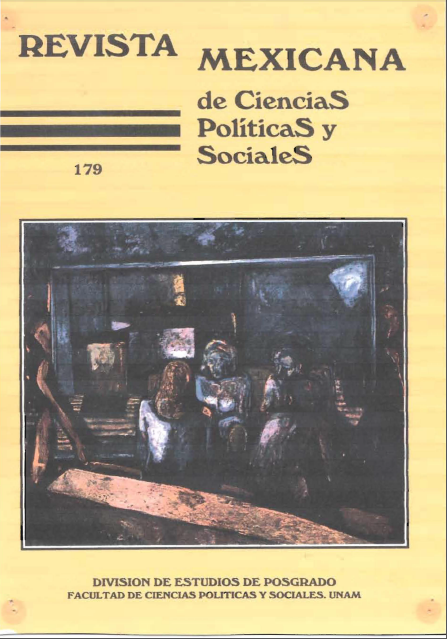Diversidad aceptada
Main Article Content
Abstract
Downloads
Article Details
Citas en Dimensions Service

La Revista Mexicana de Ciencias Políticas y Sociales publicada por la Universidad Nacional Autónoma de México se distribuye bajo una Licencia Creative Commons Atribución-NoComercial-SinDerivar 4.0 Internacional.
Basada en una obra en http://www.revistas.unam.mx/index.php/rmcpys/
La RMCPyS autoriza a sus colaboradores que suban una copia de sus trabajos publicados en sus webs personales o en cualquier repositorio de acceso abierto, siempre y cuando se mencione específicamente a la Revista Mexicana de Ciencias Políticas y Sociales como fuente original de procedencia, citando el año y número del ejemplar respectivo y añadiendo el enlace a la página web donde este órgano editorial puede ser consultado in toto, de manera abierta y gratuita en: <www.revistas.unam.mx/index.php/rmcpys>.
Las y los lectores tienen libertad para:
Compartir, copiar y redistribuir el material en cualquier medio o formato.
El licenciante no puede revocar estas libertades en tanto usted siga los términos de la licencia.
De acuerdo con los siguientes términos:
- Atribución: la/el lector/a debe reconocer el crédito de una obra de manera adecuada, proporcionar un enlace a la licencia, e indicar si se han realizado cambios. Puede hacerlo en cualquier forma razonable, pero no de forma tal que sugiera que tiene el apoyo del licenciante o lo recibe por el uso que hace.
- No comercial: la/el lector/a no puede hacer uso del material con fines comerciales.
- Si se mezcla, transforma o se desarrolla a partir de la obra licenciada, no se permite la distribución del material modificado.
Cargos por gestión de artículos
La Revista Mexicana de Ciencias Políticas y Sociales NO cobra tarifas por recibir, procesar o publicar los artículos (Article Processing Charge [APC]) enviados por los autores.





